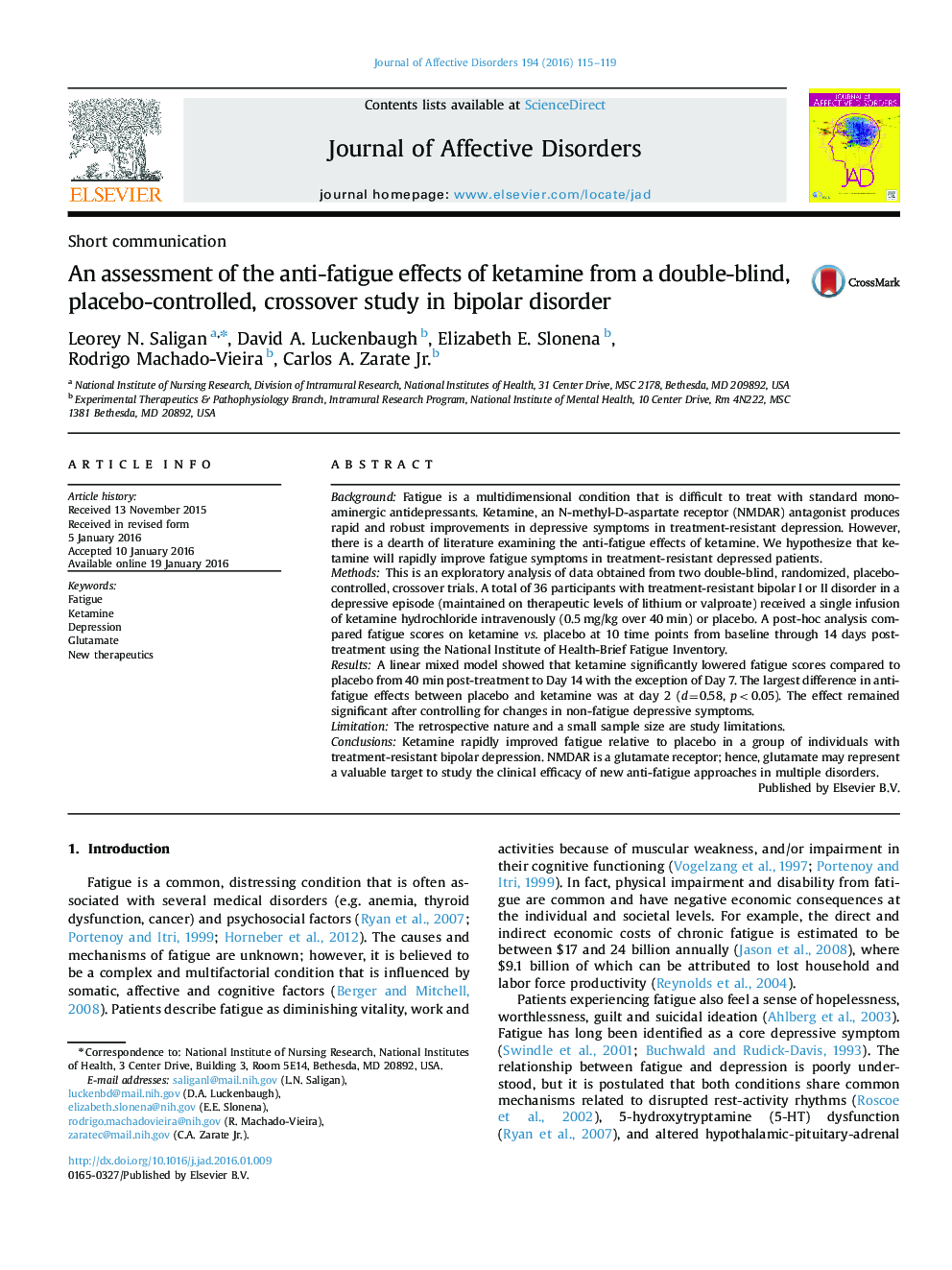| کد مقاله | کد نشریه | سال انتشار | مقاله انگلیسی | نسخه تمام متن |
|---|---|---|---|---|
| 4185863 | 1608131 | 2016 | 5 صفحه PDF | دانلود رایگان |
• NMDA receptor inhibition as a potential therapeutic option for fatigue.
• The potential role of glutamatergic system in the pathophysiology and therapeutics of fatigue.
• The utility of NIH-BFI to measure changes in fatigue symptoms in a clinical trial.
BackgroundFatigue is a multidimensional condition that is difficult to treat with standard monoaminergic antidepressants. Ketamine, an N-methyl-D-aspartate receptor (NMDAR) antagonist produces rapid and robust improvements in depressive symptoms in treatment-resistant depression. However, there is a dearth of literature examining the anti-fatigue effects of ketamine. We hypothesize that ketamine will rapidly improve fatigue symptoms in treatment-resistant depressed patients.MethodsThis is an exploratory analysis of data obtained from two double-blind, randomized, placebo-controlled, crossover trials. A total of 36 participants with treatment-resistant bipolar I or II disorder in a depressive episode (maintained on therapeutic levels of lithium or valproate) received a single infusion of ketamine hydrochloride intravenously (0.5 mg/kg over 40 min) or placebo. A post-hoc analysis compared fatigue scores on ketamine vs. placebo at 10 time points from baseline through 14 days post-treatment using the National Institute of Health-Brief Fatigue Inventory.ResultsA linear mixed model showed that ketamine significantly lowered fatigue scores compared to placebo from 40 min post-treatment to Day 14 with the exception of Day 7. The largest difference in anti-fatigue effects between placebo and ketamine was at day 2 (d=0.58, p<0.05). The effect remained significant after controlling for changes in non-fatigue depressive symptoms.LimitationThe retrospective nature and a small sample size are study limitations.ConclusionsKetamine rapidly improved fatigue relative to placebo in a group of individuals with treatment-resistant bipolar depression. NMDAR is a glutamate receptor; hence, glutamate may represent a valuable target to study the clinical efficacy of new anti-fatigue approaches in multiple disorders.
Journal: Journal of Affective Disorders - Volume 194, April 2016, Pages 115–119
